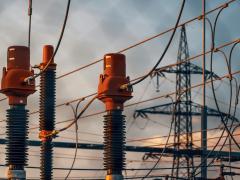Real-world energy performance certificate (EPC) data is emerging as a critical foundation for South Africa’s building-energy transition with government officials and industry specialists highlighting its growing importance for national energy planning.
Speaking at a webinar hosted by EE Business Intelligence on November 17, presenters said EPCs are beginning to close a longstanding national data gap, providing the Department of Electricity and Energy with the building-sector information needed for demand-side planning, load forecasting and future regulatory design.
Opening the session, Deputy Minister of Electricity and Energy Samantha Graham-Maré emphasised the policy significance of EPCs. “Our department deeply appreciates the commitment of building owners and professionals. We recognise the critical importance of EPCs in advancing national energy efficiency goals.” She reported that, as of November 4, 8 196 buildings have been registered and 4 539 EPCs issued, showing increased participation across public and private portfolios.
Department of Electricity and Energy Director of Energy Efficiency Xolile Mabusela confirmed that the December 7 registration deadline will not be extended. “Government’s priority is building registration, not perfect data at this stage,” he said.
Mabusela explained that EPC regulations, first introduced in 2020 and later amended, refined the relevant occupancy categories (A1-A3 and G1), updated definitions of “accounting officer” under the Public Finance Management Act and Municipal Finance Management Act, and clarified the certification thresholds: public buildings ≥1 000 m² and private buildings ≥2 000 m².
Theo Covary, Director of Unlimited Energy Resources, highlighted the emerging national dataset: “The EPC rollout is creating, for the first time, a national baseline of over 3 489 GWh already captured that can shape future efficiency policy, demand-side planning and system modelling.”
Mabusela reinforced the strategic weight of the buildings sector, noting that it accounts for 34% of final energy consumption and 37% of emissions. South Africa’s rise from 24th to 18th on the American Council for an Energy-Efficient Economy energy-efficiency scorecard is partly linked to building sector measures such as EPCs although data availability remains a challenge, he added.
Speakers further noted that EPC-derived data can help identify HVAC inefficiencies, baseload anomalies, usage patterns and retrofit priorities – key insights for managing energy consumption, improving system efficiency and informing long-term investment planning.











